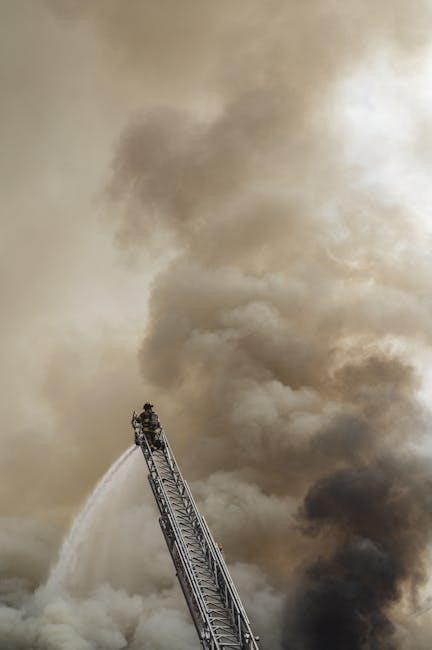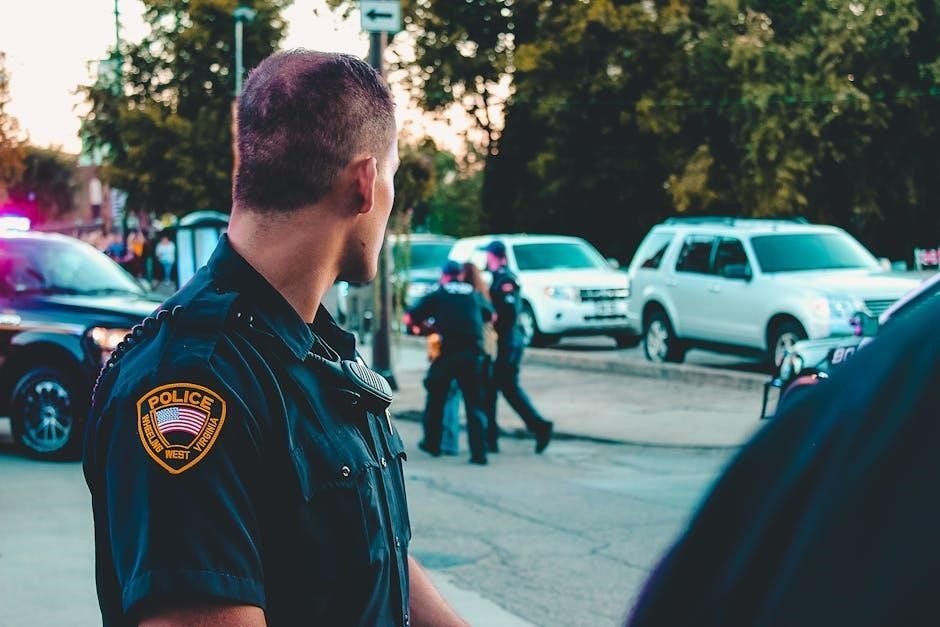Denis Johnson is a celebrated American writer known for his raw‚ poetic prose and exploration of addiction‚ spirituality‚ and human struggle in works like Jesus’ Son․
1․1․ Biography and Major Works
Denis Johnson‚ born on July 1‚ 1949‚ in Munich‚ Germany‚ is a prominent American writer known for his poetic and gritty exploration of human struggle; His early life was marked by frequent relocations due to his father’s career as a U․S․ diplomat․ Johnson developed an interest in writing at an early age and later studied at the University of Iowa‚ where he earned an M․F․A․ in creative writing․ His literary career began with poetry‚ but he gained widespread acclaim for his prose‚ particularly with the short story collection Jesus’ Son in 1992․ This work‚ which includes the celebrated story “Emergency‚” solidified his reputation for capturing the raw‚ often surreal experiences of marginalized characters․ Johnson’s other notable works include Tree of Smoke‚ which won the National Book Award in 2007‚ and Train Dreams‚ a novella praised for its haunting prose․ His writing often explores themes of addiction‚ spirituality‚ and the search for meaning in a chaotic world․
1․2․ Critical Acclaim and Awards
Denis Johnson’s work has garnered significant critical acclaim‚ earning him numerous prestigious awards and nominations․ His collection Jesus’ Son received widespread praise for its raw‚ poetic prose and its unflinching portrayal of addiction and redemption․ Johnson’s novel Tree of Smoke won the National Book Award in 2007‚ cementing his status as a major literary figure․ He was also a finalist for the Pulitzer Prize for Train Dreams‚ further solidifying his reputation․ Critics often highlight his ability to capture the surreal and the mundane‚ blending humor with profound moral introspection․ The story “Emergency” is frequently singled out for its vivid imagery and its exploration of the human condition‚ showcasing Johnson’s mastery of the short story form․ His work continues to be celebrated for its originality and emotional depth‚ leaving a lasting impact on contemporary literature․

Overview of “Jesus’ Son”
Jesus’ Son is Denis Johnson’s 1992 short story collection‚ a haunting and poetic portrayal of addiction‚ despair‚ and fleeting redemption‚ set in a fractured America․
2․1․ Publication and Reception
Jesus’ Son was published in 1992 by Farrar‚ Straus and Giroux‚ marking a pivotal moment in Denis Johnson’s career․ The collection of 11 interconnected short stories‚ including “Emergency‚” garnered widespread critical acclaim for its raw‚ lyrical prose and unflinching portrayal of addiction‚ spirituality‚ and redemption․ Critics praised Johnson’s ability to balance dark humor with profound emotional depth‚ earning the book a reputation as a modern classic of American literature․ The stories’ fragmented‚ dreamlike quality resonated with readers‚ solidifying Johnson’s reputation as a master of contemporary fiction․ The collection’s success led to numerous accolades and remains a cornerstone of Johnson’s literary legacy․
2․2․ Structure and Interconnected Stories
Jesus’ Son is structured as a cycle of 11 interconnected short stories‚ each offering a fragmented glimpse into the lives of its characters․ While the stories can stand alone‚ they collectively form a cohesive narrative that explores themes of addiction‚ spirituality‚ and redemption․ The book’s non-linear structure mirrors the chaotic and disjointed lives of its characters‚ creating a sense of surrealism and immediacy․ Recurring motifs‚ such as the search for meaning and the blurring of reality‚ tie the stories together․ Johnson’s use of overlapping characters and settings furthers the sense of continuity‚ while the loose narrative thread allows for a dynamic exploration of human struggle․ This innovative structure has been praised for its ability to capture the fragmented nature of modern life‚ making Jesus’ Son a landmark of contemporary American fiction․

Plot Summary of “Emergency”
Set in 1973‚ Emergency follows a hospital clerk and his friend Georgie through a surreal night of drug-induced chaos‚ exploring themes of reality and abstraction․
3․1․ Setting: 1973 Hospital Background
The story “Emergency” by Denis Johnson is set in a hospital during the summer of 1973․ This specific time and place create a unique atmosphere‚ reflecting the chaos and instability of the era․ The hospital‚ likely in Iowa City‚ serves as the primary setting‚ where the narrator works as a clerk in the emergency room․ The year 1973 is significant‚ as it was a time of social and cultural upheaval in America‚ which subtly influences the story’s themes․ The hospital environment is portrayed as both a place of order and disorder‚ where the characters navigate their drug-induced hazes amidst the stark reality of medical emergencies․ This backdrop underscores the surreal and dreamlike quality of the narrative‚ blending the mundane with the bizarre․
3․2․ Key Events and Narrative Flow
The story “Emergency” unfolds through a series of surreal and loosely connected events․ The narrator‚ working as a clerk in the emergency room‚ begins his shift in a state of boredom and restlessness․ He searches for his friend Georgie‚ an orderly‚ and finds him in a drug-induced haze‚ crying while mopping a spotless operating room floor․ Georgie’s delusional state and the narrator’s detached observation set the tone for the narrative’s dreamlike quality․ As the story progresses‚ the two characters ingest a mysterious mix of stolen drugs‚ leading to a series of disjointed and fantastical experiences․ A memorable scene involves a bull elk and a car accident‚ which further blurs the line between reality and abstraction․ The narrative’s fragmented structure mirrors the characters’ disorientation‚ creating a sense of uncertainty and ambiguity that defines the story’s flow․

Character Analysis
In “Emergency‚” the narrator and Georgie embody flawed‚ drug-addled lives‚ navigating a surreal reality․ Their interactions reveal themes of escape‚ moral ambiguity‚ and existential confusion through dark humor and vulnerability․
4․1․ The Narrator: Identity and Role
The narrator of “Emergency” remains unnamed‚ contributing to his enigmatic and universal persona․ Working as a clerk in a 1973 hospital emergency room‚ he embodies a sense of detachment and boredom‚ seeking escape through drugs․ His role as the story’s central voice provides a fragmented perspective‚ as his memories blur due to substance-induced haze․ The narrator’s identity is deeply intertwined with his rebellious and aimless lifestyle‚ reflecting themes of moral ambiguity and existential confusion․ Through his interactions with Georgie‚ the narrator’s passivity contrasts with Georgie’s chaotic energy‚ highlighting their shared struggle with reality․ The narrator’s voice‚ marked by dark humor and introspection‚ serves as the lens through which the surreal events unfold‚ offering a glimpse into the fractured lives of the characters․
4․2․ Georgie: Personality and Significance
Georgie‚ the narrator’s close friend and coworker‚ is a central figure in “Emergency‚” embodying chaos and unpredictability․ As an orderly in the hospital‚ Georgie’s reckless behavior and drug use underscore his rebellious nature․ His emotional instability is evident as he cries while mopping a spotless floor‚ convinced of nonexistent bloodstains․ Georgie’s actions and decisions drive the story’s surreal and often darkly comedic tone․ His character serves as a catalyst for the narrator’s experiences‚ pushing the boundaries of their already fractured reality; Georgie’s significance lies in his representation of escapism and the blurred lines between reality and illusion‚ reflecting the broader themes of the story․ His presence amplifies the narrative’s exploration of moral ambiguity and the search for meaning in a disjointed world․
Themes and Motifs
Exploring reality vs․ abstraction‚ escapism through drugs‚ moral ambiguity‚ and the interplay of hope and desperation‚ the story delves into human struggle and existential chaos․
5․1․ Reality vs․ Abstraction
In “Emergency‚” Denis Johnson masterfully juxtaposes reality and abstraction‚ creating a surreal narrative that blurs the lines between the tangible and the imagined․ The story begins grounded in the real world of a 1973 hospital setting‚ where the narrator and Georgie work․ However‚ as the characters’ drug-induced haze deepens‚ their perceptions of reality become distorted‚ leading to abstract and dreamlike scenarios․ For instance‚ Georgie’s obsessive mopping of a spotless floor‚ convinced of bloodstains‚ exemplifies this shift․ Johnson’s prose seamlessly transitions between the concrete and the abstract‚ often leaving readers questioning what is real and what is imagined․ This interplay highlights the characters’ escape from reality and their descent into a world of delusion‚ reflecting broader themes of existential confusion and the fragility of human perception․
5․2․ Escape from Reality Through Drugs
In “Emergency‚” Denis Johnson portrays drugs as a means of escaping the harsh realities of life․ The narrator and Georgie frequently steal and consume hospital medications‚ blurring their perception of time and surroundings․ Their drug-induced state creates a detached‚ almost abstract reality‚ where the boundaries between their work and personal lives dissolve․ This escape is both a coping mechanism and a form of self-destruction‚ reflecting their inability to confront the mundanity and despair of their existence․ Johnson’s depiction of drug use is neither romanticized nor condemnation; instead‚ it serves as a stark illustration of how characters seek solace in abstraction to evade the pain of their reality․ The story highlights the temporary nature of this escape‚ as the characters are inevitably pulled back into the grimness of their lives‚ underscoring the futility of their attempts to flee․
5․3․ Moral Ambiguity and Redemption
Moral ambiguity is a central theme in “Emergency‚” as Denis Johnson crafts characters who exist in a gray area between right and wrong․ The narrator and Georgie‚ hospital employees stealing drugs‚ embody this moral vagueness‚ engaging in reckless behavior while maintaining a peculiar sense of camaraderie․ Their actions are neither entirely condemned nor justified‚ leaving readers to question their ethical standing․ Amidst the chaos‚ moments of unexpected tenderness and vulnerability hint at the possibility of redemption․ Johnson suggests that even in the depths of moral decay‚ there is a glimmer of hope for transformation․ This duality challenges readers to reflect on their own judgments about morality and the potential for change‚ even in the most flawed individuals․ The story thus presents a nuanced exploration of human complexity‚ where redemption remains an open‚ unresolved question․
5․4․ Hope and Desperation
In “Emergency‚” Denis Johnson masterfully weaves the intertwined themes of hope and desperation‚ capturing the precarious balance between seeking redemption and succumbing to chaos․ The narrator and Georgie‚ trapped in their drug-fueled existence‚ cling to moments of hope‚ however fleeting․ Georgie’s delusional mopping of the operating room floor‚ for instance‚ reflects a desperate attempt to impose order on a spiraling world․ Yet‚ amidst the surreal and often bleak narrative‚ Johnson hints at the possibility of transcendence․ The characters’ actions‚ though destructive‚ are driven by a longing for connection and meaning․ This duality underscores the human condition’s resilience‚ where even in the depths of despair‚ a glimmer of hope persists․ Johnson’s portrayal of this fragile coexistence invites readers to reflect on the enduring struggle between light and darkness in life․ The story becomes a poignant exploration of how hope‚ however fragile‚ can coexist with desperation․

Writing Style and Prose
Denis Johnson’s prose in “Emergency” is marked by vivid‚ surreal imagery and a unique narrative voice that blends gritty realism with poetic lyricism‚ creating a haunting yet captivating tone․
6․1․ Unique Narrative Voice
Denis Johnson’s unique narrative voice in “Emergency” captivates through its raw‚ intimate tone‚ blending humor and pathos․ The narrator’s detached yet deeply personal perspective creates a surreal atmosphere‚ drawing readers into the chaotic world of the hospital․ His voice is both poetic and unflinchingly honest‚ capturing the fragmented thoughts and emotions of characters lost in a haze of drugs and desperation․ This distinctive voice not only reflects the narrator’s inner turmoil but also mirrors the broader societal disillusionment of 1970s America․ Johnson’s ability to craft such a compelling and relatable voice is a hallmark of his literary brilliance‚ making “Emergency” a standout in contemporary literature․
6․2․ Use of Surreal Imagery
Denis Johnson’s “Emergency” is rich with surreal imagery that immerses readers in a dreamlike world․ The narrator describes Georgie mopping a spotless floor‚ convinced of invisible blood‚ creating a hauntingly absurd scene․ The image of a bull elk standing “with an air of authority and stupidity” outside the hospital contrasts sharply with the chaos inside‚ symbolizing the characters’ detachment from reality․ These vivid‚ often illogical visuals blur the line between the tangible world and the characters’ drug-induced perceptions‚ enhancing the story’s exploration of escapism and moral ambiguity․ Johnson’s mastery of surreal imagery not only reflects the characters’ fractured minds but also underscores the broader themes of disorientation and redemption in 1970s America․ This technique captivates readers‚ making “Emergency” a powerful exploration of human struggle and transcendence․
6․3․ Comic Elements and Irony
Denis Johnson infuses “Emergency” with subtle comic elements and irony‚ balancing the story’s darker themes․ The absurdity of Georgie’s actions‚ such as crying while mopping a spotless floor‚ adds a layer of dark humor․ The narrator’s deadpan delivery‚ like describing a bull elk as “giving off an air of authority and stupidity‚” heightens the comedic undertone․ These moments of irony‚ where the characters’ perceptions of reality are skewed by drugs‚ create a contrast between the bleakness of their lives and the absurdity of their situations․ Johnson’s use of humor underscores the moral ambiguity and the characters’ desperation‚ offering a nuanced exploration of their struggles․ This blend of comedy and pathos makes the narrative both haunting and deeply human‚ reflecting the complexity of their experiences in 1970s America․

Historical Context
Set in 1973‚ “Emergency” reflects the social and cultural upheaval of the time‚ capturing the era’s counterculture and economic struggles through its Iowa City hospital setting․
7․1․ 1973 America: Social and Cultural Landscape
The story “Emergency” by Denis Johnson is set against the backdrop of 1973 America‚ a time marked by social upheaval and cultural transformation․ The early 1970s were shaped by the aftermath of the Vietnam War‚ the Watergate scandal‚ and growing disillusionment with political institutions․ The counterculture movement‚ which peaked in the late 1960s‚ continued to influence youth‚ with many seeking escape through drugs and alternative lifestyles․ Economically‚ the U․S․ faced rising inflation and oil crises‚ contributing to a sense of instability․ Johnson’s portrayal of a hospital setting in Iowa City reflects this era’s tension between order and chaos‚ as well as the widespread experimentation with and addiction to drugs․ The story captures the spirit of rebellion and existential confusion prevalent among young people at the time‚ offering a gritty snapshot of America’s social and cultural landscape during this pivotal year․
7․2; Impact on the Story’s Themes
The social and cultural turbulence of 1973 America deeply influenced the themes of “Emergency;” The era’s disillusionment and rebellion are reflected in the narrator’s detachment and Georgie’s erratic behavior․ The widespread drug experimentation of the time is central to the story‚ as the characters’ substance-induced haze mirrors the broader societal escapism․ The hospital setting‚ with its controlled chaos‚ contrasts with the characters’ internal turmoil‚ highlighting themes of moral ambiguity and the search for meaning․ Johnson uses the 1973 backdrop to explore the tension between reality and abstraction‚ as well as the fragility of hope amidst desperation․ The story captures the existential confusion of the era‚ offering a poignant critique of the human condition during a time of profound upheaval․

Critical Reception and Scholarly Analysis
Critics and scholars widely acclaim “Emergency” for its haunting prose and exploration of human frailty‚ with many analyzing its surreal narrative and emotional depth․
8․1․ Academic Perspectives and Essays
Academic critics have thoroughly analyzed “Emergency‚” praising its complex narrative structure and profound exploration of human vulnerability․ Many scholars focus on the story’s surreal imagery and its ability to blur the lines between reality and abstraction․ Essays often highlight Johnson’s unique prose‚ which combines dark humor with poignant insights into addiction and moral ambiguity․ The unreliable narrator’s perspective has been a focal point for discussion‚ as it challenges readers to question the accuracy of events․ Academic analyses also explore the themes of escapism and redemption‚ arguing that the characters’ drug-induced haze serves as both a coping mechanism and a form of self-destruction․ These essays collectively underscore Johnson’s mastery of capturing the fragmented lives of his characters‚ making “Emergency” a cornerstone of contemporary literary study․
8․2․ Comparative Analysis with Other Works
Denis Johnson’s “Emergency” is often compared to other stories in Jesus’ Son‚ as it shares themes of addiction‚ moral ambiguity‚ and surreal imagery․ Scholars note similarities with “Train Dreams‚” another Johnson work‚ in its exploration of isolation and fragmented narratives․ However‚ “Emergency” stands out for its dark humor and poetic prose‚ which are less prominent in Johnson’s other works․ Comparisons with “Tree of Smoke” highlight differences in scale‚ as “Emergency” focuses on intimate‚ personal crises rather than grand‚ war-torn landscapes․ These comparisons reveal Johnson’s versatility in exploring human struggles through varied narrative styles‚ while maintaining his signature lyrical and haunting tone․ Such analyses emphasize “Emergency” as a quintessential representation of Johnson’s literary genius and thematic preoccupations․
- Shares themes of addiction and moral ambiguity with other works․
- Unique for its dark humor and poetic imagery․
- Comparisons with “Train Dreams” and “Tree of Smoke” highlight narrative differences․

Cultural Impact and Legacy
Denis Johnson’s “Emergency” has left a lasting impact on contemporary literature‚ influencing many writers with its unique prose and themes․ Its exploration of addiction and redemption continues to resonate‚ making it a staple in academic studies and popular culture references․
9․1․ Influence on Contemporary Literature
Denis Johnson’s “Emergency” has profoundly influenced contemporary literature‚ inspiring writers to explore gritty realism and surreal narratives․ Its unique prose and thematic depth have encouraged authors to experiment with unconventional storytelling‚ blending absurdity and emotion․ The story’s exploration of addiction‚ moral ambiguity‚ and redemption resonates deeply‚ making it a benchmark for modern literary fiction․ Many emerging writers cite Johnson’s work as a catalyst for their own creative approaches‚ particularly in capturing the struggles of marginalized characters․ The story’s ability to balance dark humor with poignant insight has also shaped the way contemporary authors handle complex themes․ As a result‚ “Emergency” remains a pivotal work in shaping the tone and style of 21st-century American literature․
9․2․ Adaptations and Popular Culture References
Denis Johnson’s “Emergency” has left a lasting imprint on popular culture‚ with its themes and imagery frequently referenced in music‚ film‚ and literature․ The story’s surreal tone and exploration of addiction have inspired artists to capture its essence in various mediums․ While “Emergency” itself has not been directly adapted into a film‚ the collection Jesus’ Son was adapted into a critically acclaimed movie in 1999‚ introducing Johnson’s work to a broader audience․ The story’s influence can also be seen in television shows and songs that explore similar themes of escapism and moral ambiguity․ Additionally‚ “Emergency” is often discussed in academic circles and pop culture forums‚ cementing its status as a cultural touchstone․ Its vivid imagery and haunting prose continue to resonate‚ making it a timeless reference point in contemporary media․
Denis Johnson’s “Emergency” remains a profound exploration of human frailty‚ addiction‚ and redemption‚ leaving a lasting impact on literary culture and readers alike․
10․1․ Summary of Key Insights
In “Emergency‚” Denis Johnson crafts a poignant tale set in a 1973 hospital‚ exploring themes of addiction‚ moral ambiguity‚ and the blurred lines between reality and abstraction․ The narrator and Georgie‚ two flawed yet deeply human characters‚ navigate their chaotic lives through drug-induced escapades‚ revealing the desperation and hope intertwined in their struggles․ Johnson’s prose‚ both stark and lyrical‚ captures the surreal atmosphere of their experiences‚ offering a raw yet compassionate portrayal of their attempts to escape the mundanity and pain of their existence․ The story’s historical context‚ set against the backdrop of 1970s America‚ underscores the societal and cultural upheavals that shaped their lives․ Ultimately‚ “Emergency” stands as a powerful exploration of redemption and the resilience of the human spirit‚ cementing its place as a cornerstone of contemporary literature․
10․2․ Final Thoughts on “Emergency”
Denis Johnson’s “Emergency” is a captivating and deeply unsettling tale that lingers long after the final sentence․ The story’s exploration of addiction‚ moral ambiguity‚ and the search for meaning in a chaotic world resonates profoundly․ Johnson’s prose‚ both stark and lyrical‚ elevates the narrative to a level of poetic brilliance‚ while the characters’ struggles and vulnerabilities make them undeniably human․ The tale’s surreal and often darkly comedic tone underscores the unpredictability of life and the blurred lines between reality and abstraction․ Ultimately‚ “Emergency” serves as a powerful meditation on redemption‚ hope‚ and the resilience of the human spirit‚ solidifying its place as a masterpiece of contemporary literature․ Its influence continues to inspire writers and captivate readers‚ ensuring its enduring legacy․
